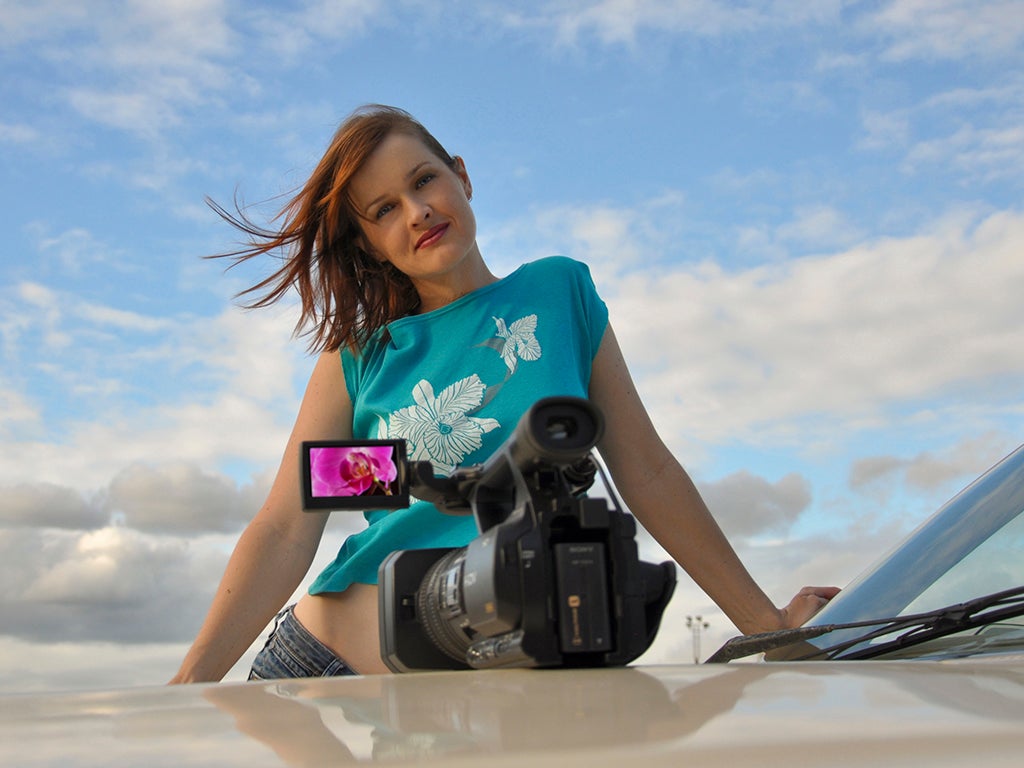The Independent's journalism is supported by our readers. When you purchase through links on our site, we may earn commission.
My intersex body: more than an object of fascination or repulsion to be ‘fixed’
Cosmetic gender-assigning operations on children with ambiguous genitalia can have devastating long-term implications. As genetic screening of embryos increases, we can expect variations like 5-alpha-reductase deficiency to disappear from the gene pool

A few years ago, I produced and directed an autobiographical documentary called “Orchids: My Intersex Adventure” on my story of growing up intersex. Intersex applies to an individual with a combination of male and female biological sex attributes, and it is also known as a disorder of sex development or hermaphroditism.
Although it is generally considered pejorative, some within the intersex community have reclaimed the word “hermaphrodite”, although it is technically incorrect for humans because we can’t reproduce as either a male or female.
Being born intersex wasn’t so bad in of itself, but I could not help but get the pervasive sense that I was very different, and not in a good way. These negative impressions had a profound impact on my self-esteem and they seemed to come from everywhere – my family, my doctors and even the media.
Later, as an adult, when I became a documentary filmmaker I looked into the representation of people with intersex variations in the media some more, and it formed part of my doctoral thesis. I discovered, if even mentioned at all, we have long been positioned in literature, popular culture and the media as objects of fascination, repulsion and titillation.
Recent stories in the news media on the Guevedoces (which translates as "penis at twelve", according to the BBC), highlight some of my concerns about the impression given to younger generations of people with intersex variations. While I am sure Dr Michael Mosely’s account of the children who live in Salinas, Dominican Republic in the BBC2 series “Countdown to Life – the extraordinary making of you" tries to be sensitive, the labelling of the variation 5-alpha-reductase deficiency by some media outlets reporting on the documentary as a “disorder” and the children as “astonishing” and “abnormal” is exoticising and pathologising. I acknowledge that it is hard even for people with an intersex variation to find the words to describe ourselves more generally, but the framing must change so that our diversity might be more readily accepted as natural.
To be clear, intersex is not common, but it’s not as rare as one might expect – the frequency is as high as 1 or 2 in every 100 individuals. In fact, it is now thought all humans start as intersex in utero before typically developing towards male or female phenotypes. My own “condition” Androgen Insensitivity Syndrome (AIS) means although I have male sex chromosomes and gonads, I presented as female at birth.
That doesn’t mean my variation escaped the notice of others though. I was diagnosed at age 5 but did not find out the truth about my body until much later. At age 17, finally all was made plain about my AIS and had surgery to remove my testicles. Prior to this, I only knew scant details yet I was certain that I was not like any of my peers, particularly during adolescence, and I felt completely isolated. I feel I would have taken in the facts more readily and felt better about myself had I known more from a young age.
In modern times, medicine employs surgery and hormonal cures to drastically alter anything other than complete maleness or femininity. Gender-assigning operations on children and infants with ambiguous genitalia for purely cosmetic reasons can have devastating long-term implications. Intersex advocacy and activism has meant that many medical practitioners and hospitals have reviewed their protocols with regards to interventions and have even led to some countries adopting a moratorium on infant genital surgeries.
In 2013 the United Nations condemned normalising surgeries on children with intersex variations in a Special Report on torture as cruel, inhuman and degrading. However, we are still at risk of erasure. As the availability of genetic screening of embryos increases, we can expect variations like 5-alpha-reductase deficiency to gradually disappear from the gene pool.
As a society, I have to wonder why we are choosing to go down this path, which, to me, is not unlike the future as described in the 1997 science fiction film “Gattaca”.
One of the goals I had in telling my own story in a documentary and publically revealing me as intersex to a global audience was to change minds and show how our lives are not so unlike anyone else. In particular, I wanted to create a positive frame for young people with intersex variations, who I hoped would not have to go through what I experienced. I had to hide who I was from others, and was constantly terrified of being excluded for the monster and freak I had come to believe I was.
In my own life, I’ve been healthy and physically active; I have been able to get an education, form intimate relationships and a family, and contribute to my community. We all want to find our potential and be acknowledged. For many of us, the pressing issues might not be so much about what doctors and scientists have to discover or say about our bodies, but the shame, stigma and secrecy we endure every day.
I strongly believe it is beholden on the media to attempt to describe people with intersex variations and their bodies as something more than a medical mystery or fabulous anomaly, and promote ethical debates and a re-visioning around what is considered to be aberrant and abject.
Dr Phoebe Hart is an award-winning television writer, director and producer of Orchids: My Intersex Adventure, and a screen studies academic at the Queensland University of Technology.
Join our commenting forum
Join thought-provoking conversations, follow other Independent readers and see their replies
Comments